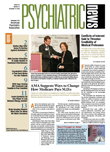An examination of the impact of Massachusetts' near-universal health care plan on employers found that a growing number added insurance coverage for employees since the state insurance reform program was launched in 2006.
The finding appears to rebut concerns that residents would flee employer-sponsored plans for cheaper and higher-quality publicly assisted insurance programs.
The research, based on a survey of 1,003 randomly selected Massachusetts companies last spring and compared with a separate survey of companies nationwide, was published online October 28 in Health Affairs. The authors found that the percentage of firms with three or more workers that offer health insurance coverage increased from 73 percent to 79 percent since their previous employer survey published in 2007. Those figures compared with national coverage rates of employers of all sizes of 60 percent in 2007 and 63 percent in 2008, according to a survey of employers nationwide by the Henry J. Kaiser Family Foundation and Health Research and Educational Trust.
Critics of the Massachusetts plan had warned that the availability of a low-cost, high-benefit, publicly funded health insurance system would produce several unintended consequences, collectively known as “crowd out.” One crowd-out worry was that such public plans would drain participants from employer-sponsored plans and undermine them.
President George W. Bush, for example, explaining his vetoes of the renewal of the State Children's Health Insurance Program (SCHIP), cited concerns that an expansion of public programs would lead people to substitute—or“ crowd out”—private health insurance plans.
Additionally, critics worried that private employers would dissolve their plans, knowing that their employees could qualify for public health insurance benefits, while the company paid a nominal penalty for failing to offer insurance. (Households earning less than 300 percent of the federal poverty level can receive subsidized coverage under part of the state plan known as Commonwealth Care if no one in the household is offered employer-sponsored coverage.)
The authors of the recent research said their findings indicate that concerns of widespread crowd out appear unfounded.
“Last year we reported that there was little early evidence of crowd out, and this year the same conclusion applies,” wrote Jon Gabel, a senior fellow at National Opinion Research Center and lead author of the report, and colleagues.
The survey reported fewer firms planned to reduce or eliminate coverage than in the previous year. The Massachusetts companies with three to 50 workers were no more likely in 2008 to plan to drop coverage or restrict eligibility than they were in 2007. Those findings contrasted with increases of 3 percent to 6 percent in the rate of firms nationally that indicate they are planning to drop coverage and the 5 percent to 15 percent increase in the percentage planning to restrict eligibility.
The decision of Massachusetts employers to expand coverage when there are publicly funded alternatives available to their employees may stem from a growing belief that it is a duty of businesses to provide employer-sponsored health insurance, according to the authors of the new study. Their conclusion was based on other survey findings that solid majorities of firms believe that employers have such a responsibility and that employees have a responsibility to buy health insurance. An increasing percentage of companies also indicated in response to the recent Massachusetts study that they believe that health insurance requirements of the state should apply equally to firms with fewer than 11 workers, which now face fewer insurance requirements, than those with larger workforces.
